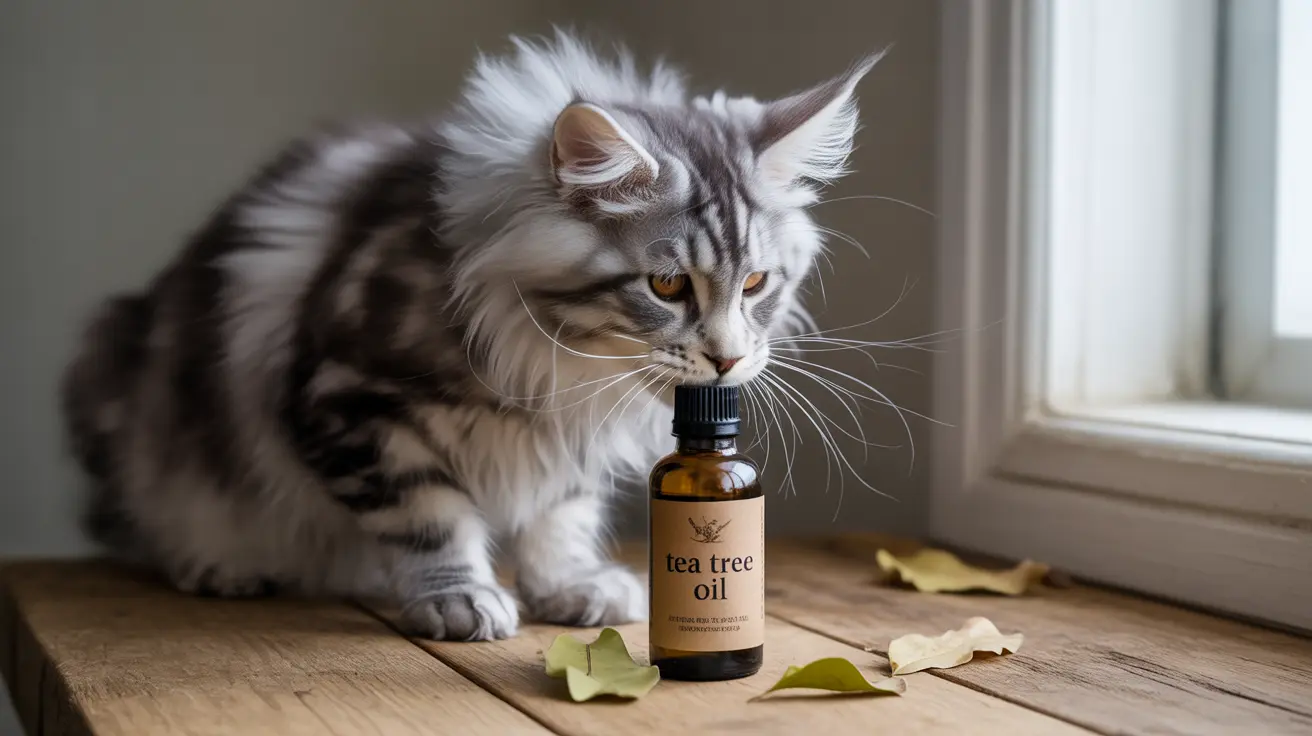Many pet owners are drawn to natural remedies, but when it comes to tea tree oil and cats, caution is paramount. This potent essential oil, while beneficial for humans, poses serious health risks to our feline companions. Understanding these dangers could mean the difference between life-threatening complications and keeping your cat safe.
In this comprehensive guide, we'll explore why tea tree oil presents such significant risks to cats, identify the warning signs of poisoning, and provide crucial safety information for pet owners. We'll also discuss what to do if your cat has been exposed to this potentially dangerous substance.
Understanding Tea Tree Oil Toxicity in Cats
Tea tree oil contains concentrated compounds called terpenes, particularly terpinen-4-ol, which are toxic to cats. Unlike humans, cats lack certain liver enzymes necessary to break down these compounds effectively. This metabolic deficiency means that even small amounts of tea tree oil can build up to dangerous levels in a cat's system.
What makes this especially concerning is that cats can be exposed to tea tree oil in multiple ways: through direct skin contact, accidental ingestion during grooming, or even by inhaling diffused oil particles in the air.
Common Routes of Exposure and Their Dangers
Cats are particularly vulnerable to tea tree oil exposure through:
- Direct skin application of products containing tea tree oil
- Licking their fur after environmental exposure
- Breathing in vapors from diffusers or humidifiers
- Contact with treated surfaces or objects
Even diluted solutions can be harmful, as cats' sensitive skin readily absorbs these compounds, and their meticulous grooming habits increase the risk of ingestion.
Recognizing Signs of Tea Tree Oil Poisoning
Quick recognition of poisoning symptoms is crucial for proper treatment. Watch for:
- Excessive drooling or drooling that seems unusual
- Vomiting or diarrhea
- Difficulty walking or uncoordinated movements
- Lethargy or weakness
- Muscle tremors
- Respiratory distress
- Depression or behavioral changes
Prevention and Safe Alternatives
The safest approach is to completely avoid using tea tree oil in households with cats. Instead, consider these pet-safe alternatives for common uses:
- For cleaning: Use pet-safe enzymatic cleaners
- For aromatherapy: Choose cat-safe essential oils (in consultation with your vet)
- For skin treatments: Use veterinary-approved products specifically designed for cats
Emergency Response and Treatment
If you suspect your cat has been exposed to tea tree oil, immediate action is crucial:
- Remove your cat from the area of exposure
- Do not induce vomiting unless instructed by a veterinarian
- Contact your veterinarian or emergency animal hospital immediately
- If possible, bring the tea tree oil product with you to the vet
Frequently Asked Questions
Is tea tree oil safe for cats to ingest or apply topically?
No, tea tree oil is not safe for cats in any form. Both ingestion and topical application can lead to severe poisoning due to cats' inability to metabolize the oil's toxic compounds.
What are the symptoms of tea tree oil poisoning in cats, and how long do they last?
Symptoms can appear within 2-12 hours and may include drooling, vomiting, weakness, and tremors. Without treatment, symptoms can persist and worsen, potentially leading to serious complications.
How do I safely clean my cat if they have been exposed to tea tree oil?
Use warm water and mild dish soap to wash the affected area. Avoid spreading the oil to other parts of their body, and dry them thoroughly. Always consult a veterinarian for proper guidance.
Can tea tree oil vapors from a diffuser harm my cat?
Yes, cats can be harmed by inhaling tea tree oil vapors from diffusers. Even small amounts in the air can cause respiratory issues and other toxic effects.
What should I do if I suspect my cat has been poisoned by tea tree oil?
Contact your veterinarian immediately. Do not wait for symptoms to worsen, as early intervention is crucial for successful treatment.
Remember, when it comes to your cat's health and safety, it's always better to err on the side of caution. Keep tea tree oil and products containing it well out of reach of your feline friends, and consult your veterinarian about safe alternatives for your specific needs.






